In a world inundated with fad diets and quick-fix weight loss solutions, many individuals are seeking sustainable and holistic approaches to managing their weight. Ayurveda, an ancient system of medicine originating from India, offers a comprehensive framework for achieving and maintaining a healthy weight through a combination of dietary principles, lifestyle practices, and therapeutic treatments.
Central to Ayurvedic philosophy is the concept of balance, or “dosha equilibrium.” According to Ayurveda, each individual possesses a unique constitution, or dosha, which comprises the elements of earth, water, fire, air, and ether. These doshas, known as Vata, Pitta, and Kapha, govern various physiological functions in the body and are believed to influence one’s propensity towards certain imbalances, including weight gain.
Ayurvedic dietary guidelines for weight management emphasize the consumption of whole, unprocessed foods that are suited to one’s dosha constitution. For instance, individuals with a predominant Kapha dosha may benefit from a diet that is light, warm, and spicy, while those with a Pitta imbalance may thrive on cooling and soothing foods. Incorporating a variety of fresh fruits, vegetables, whole grains, legumes, and healthy fats can help support metabolic health and promote satiety.
In addition to dietary recommendations, Ayurveda advocates for lifestyle practices that foster balance and harmony within the body-mind complex. Regular exercise, adequate sleep, stress management techniques, and mindful eating habits are all integral components of a holistic approach to weight management.
Furthermore, Ayurveda offers a range of therapeutic treatments that can support the body’s natural detoxification processes and enhance metabolic function. Powder massages, known as Udvartana, involve the application of herbal powders or pastes to the skin to stimulate circulation, exfoliate dead skin cells, and reduce excess adipose tissue. Similarly, Kizhi, a technique that utilizes heated herbal poultices, can help alleviate inflammation, improve digestion, and promote weight loss.
Dhara, a form of Ayurvedic therapy involving the continuous pouring of warm herbal oils over the body, is renowned for its ability to calm the nervous system, balance the doshas, and induce deep relaxation. Medicated steam baths, or Swedana, can further enhance detoxification and purification by opening the pores, promoting sweating, and eliminating toxins from the body.
For those seeking a more intensive approach to weight management and rejuvenation, Panchakarma, a comprehensive detoxification protocol, may be recommended. This series of therapeutic procedures aims to cleanse the body of accumulated toxins, restore dosha balance, and revitalize the tissues through methods such as oleation, sweating, and elimination therapies.
In conclusion, holistic weight management encompasses not only dietary and lifestyle modifications but also therapeutic interventions that address the root causes of imbalance in the body. By incorporating Ayurvedic principles such as proper nutrition, regular exercise, stress reduction, and therapeutic treatments like powder massages, Kizhi, Dhara, Medicated steam bath, and Panchakarma, individuals can achieve sustainable weight loss and overall well-being.


Give a Reply